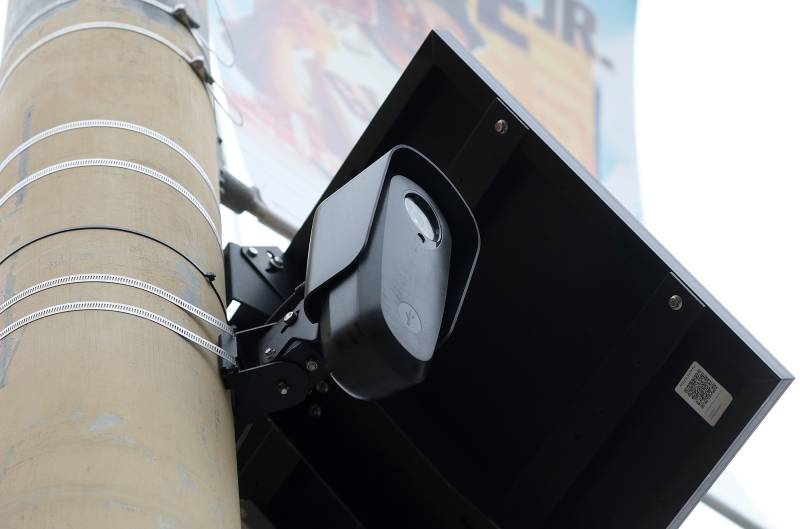Oakland has installed 126 on city streets so far and plans to finish with the rest by early November, Thao and police officials announced Thursday.
The cameras can capture key identifying details including car type, color, license plate state, make, bumper stickers and decals, and whether a vehicle has a missing or covered plate, according to Flock Safety. They scan cars for information and then compare the data with a crime database maintained by the FBI. If a vehicle is suspected of being linked to a crime, an automatic alert is sent to the CHP and Oakland Police Department in real time.
The footage obtained is stored and searchable within the cloud for 30 days and then purged, according to Flock Safety spokesperson Holly Beilin, and the state has said that only law enforcement will have access.
“Flock Safety is really committed to solving crime, improving public safety, but also balancing privacy protections,” Beilin said. “We have found that 30 days is a good balance between being able to help investigators actually solve crime, but also ensure that data isn’t being kept for longer than it necessarily needs to be kept.”
However, criminal justice advocates have called for more guardrails around the implementation of license plate reader technology, which often outpaces law enforcement and the public understanding of its use.
Cagle, from the ACLU of Northern California, said the cameras aren’t actually proven to reduce crime and instead create massive logs with intimate portraits of individuals — even those who haven’t committed crimes — and their movement.
“We think this latest expansion of surveillance in Oakland is yet another expansion based on thin evidence that it will truly prevent crime and bring about real public safety,” Cagle said.
Beryl Lipton, senior investigative researcher for the Electronic Frontier Foundation, worried about how long the data would be retained and how it could be shared across law enforcement agencies.
“We’ve seen that a lot of this information doesn’t need to be held indefinitely or even for days or weeks or months in order to be useful to law enforcement,” Lipton said. “At a certain point, it is just actually opening up opportunities for harm as opposed to supplementing the public safety mission of law enforcement.”
Earlier this year, the EFF revealed that dozens of California law enforcement agencies shared license plate information gathered by automatic readers with states with anti-abortion laws without a warrant, despite a state order prohibiting that data from being shared with states that could use the information to track people seeking or providing abortions.
Lipton called it “pretty troubling” to find that “there have been multiple police departments that — because of the ways these systems are set up — don’t realize or don’t care that they are sharing this type of information across the country.”
To address concerns, Oakland officials said they worked with the Privacy Advisory Commission, which advises the city on best practices to protect Oaklanders’ privacy rights, to create a use policy surrounding the technology.
“We will not be sharing this data with Homeland Security or any other organization,” Thao said. “We will be keeping it here just for the sake of any crimes. The only time we will share with another agency is if we are doing the work together to solve a particular crime.”
However, while Oakland PD may not choose to share the information directly with ICE or DHS, “having that information makes an agency vulnerable to demands from outsiders,” Cagle said.
At Thursday’s conference, OPD touted some of the early results of the cameras as a success. Officer Omar Daza-Quiroz said there were multiple success stories, including apprehending suspects from shootings earlier this month.
Other cities have taken similar measures to step up the use of technology in recent months. In June, San Francisco announced that 100 public safety cameras were installed at city intersections to combat retail and auto theft, and multiple arrests were made with the technology. San Jose aimed to have 500 cameras installed around the city by summer.
KQED’s Alex Hall contributed to this report.

